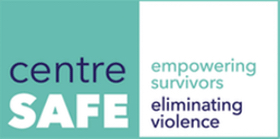Engaged Bystanders Make a Difference
Engaged bystanders make a difference
July 22, 2015
Have you ever witnessed something your gut told you was wrong, your heart told you to do something, but your head told you to not interfere? In other words, have you ever been a passive bystander? Most of us have been in situations in which we simply decided not to act. What was it that prevented us from becoming an engaged bystander? What prevented us from helping someone in a bad situation? Fear? Not knowing what to do or say? Ambiguity?
As difficult as it is for us, as adults, to step up and intervene, imagine how much more difficult it is for teens. If your teen was at a party and saw someone making sexual advances toward a student who was drunk, would he or she intervene? What if someone made a rape joke in class or when out to dinner? What would your teen do if a sexually explicit photo of a classmate went viral on social media? What should he or she do?
Being an engaged bystander can involve something as small as a young adult telling his or her friend that his or her sexist language is offensive or as great as a college student calling the police if he or she witnesses an act of sexual violence from a dorm window. An engaged bystander is anyone who observes an emergency or a situation in which it looks like someone could use some help and steps in to offer assistance or prevent interpersonal violence from occurring.
Bystander intervention programs teach people to become engaged bystanders by overcoming their resistance to checking in and helping out. These programs have been found to be very helpful on college and high school campuses to thwart sexual assault, abusive alcohol consumption, and concerns about suicide, depression and eating disorders.
When faced with a situation in which you want to be an engaged bystander, remember the three Ds (Green Dot College Strategy, 2015):
• Direct : do something yourself,
• Delegate: if you cannot do something yourself ask a friend to help or talk to a trusted adult or peer,
• Distract: if you do not want to address the situation directly or acknowledgeit, use a distraction that will defuse the situation or calm things down in the moment — accidentally spill a drink, ask to borrow the person’s phone, ask the person who is in a risky situation to go to the restroom with you, or even, “Hey dude, your car is being towed.”
We all have the power to help stop potential violence in our community. We all have the power to become engaged bystanders. In the words of Martin Luther King Jr., “Our lives begin to end the day we become silent about things that matter.”






